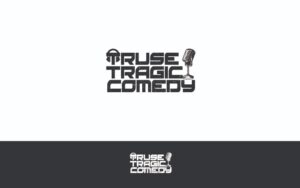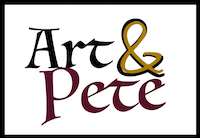
John Batiste
Abby Ross
Louisiana native Jonathan Batiste is a Grammy-nominated musician, TV personality, and bandleader of The Late Show with Stephen Colbert. Though just 33 years old, he has released 11 albums and Eps (including his just-released “Anatomy of Angels: Live at the Village Vanguard”) and has recorded and performed with such artists as Stevie Wonder, Prince, Willie Nelson, Ed Sheeran and Mavis Staples. He is the Music Director off The Atlantic and Creative Director of the National Jazz Museum in Harlem.
Born into a family of professional musicians, at eight, young Batiste played percussion and drums with his family, the Batiste Brothers Band. At 11, he switched to piano. Six years later, attending the New Orleans Center for Creative Arts (with Trombone Shorty) he released his first album on Apple Music, Times in New Orleans. In 2004 he graduated from St. Augustine High School in New Orleans followed by a bachelor’s and master’s degree from NYC’s Juilliard School.
Among his countless honors, Batiste has been awarded the American Jazz Museum Lifetime Achievement Award, the Harry Chapin ASCAP Humanitarian Award, and the Movado Future Legend Award. This year, his cover of “St. James Infirmary Blues” was nominated for a Grammy. And he recently completed a U.S. festival tour with The Dap-Kings, a soul and funk band. I caught up with the busy musician just before his nightly taping in New York City:
When you were 8, you played drums and percussions in your family’s band. What kind of music was that?
A range, but rooted in funk and soul music, and of course New Orleans music. My uncle was one of the subs for Art Neville in the band The Meters, and my cousin played in The Funky Meters after Zigaboo left the band. So it was kind of in that tradition.
Why did your mother suggest you switch from drums to piano when you were 11?
Piano is the conductor and composer’s instrument; Duke Ellington played piano. It’s one of those instruments that from my mother’s perspective would be a good foundation, and there were already several drummers in my family. I took to the piano and it was really a great insight.
When you were 18 and at Juilliard, you heard Thelonious Monk for the first time and you listened to “Evidence “on record. What was that like for you?
My ears were very open because I was exploring, and the sound I was exploring was really exemplified most by Thelonious Monk. I did a deep dive of Monk for a year, and it’s evidenced by the difference in my playing from my first two records as a leader. Listen to Times in New Orleans, and then two years I released Live in New York: At the Rubin Museum;
I like to show people the difference in my playing from 17 to 19, and it’s really almost solely due to that experience, being deep in the shed and trying to figure out this sound that was kindred to Thelonious Monk’s sound.

John Batiste
Abby Ross
Who were your mentors?
I had so many great ones. My first mentor was my father, he’s still with us and he’s an amazing bass player and singer who I was really fortunate to hear since I was a kid. Not only with my family’s band but playing all around the city with different musicians. Alvin Batiste, a second cousin, was another one of my early mentors in New Orleans, who really got me into the study of jazz music and the study of being an individual on an instrument. He was also one of the chief educators in the New Orleans community and taught most of the musicians of note from New Orleans over the last 40 years, including the Marsalis’s and Harry Connick Jr.
You’re the creative director of the National Jazz Museum in Harlem. What does that mean?
I started when I was at Juilliard studying jazz history, and Loren Schoenberg, who started the Jazz Museum in Harlem in 2001, wanted somebody to come and kind of bring to the museum a new experience and new programming ideas, I’d started a program there called Jazz Is: Now! The program brought in so many different types of people to the museum and the Harlem community. We had Lenny Kravitz come by and Questlove, and some of the Red-Hot Chili Peppers; it was just a real infusion of non-jazz-audience, non-jazz-lovers, and non-jazz-musicians, which is what he wanted. I think my role is to give back to the Harlem community because of what it has given to us.
You’re also the music director of Atlantic Magazine. What do you do for them?
Well, I love to consider them as a collaborator in the same fashion as the museum. I see myself as bringing a different energy, a different sort of source of inspiration for the publication whether it’s writing about music or the intersection of history and music, or current events and things related to culture that are going on, it’s always been a really great outlet for me, something I think is great in terms of influencing their output and bringing new audiences to it.
You started Stay Human in 2005, what does the name mean to you?
It’s just a philosophy and something that frames the music that we make, especially during the time that we were going down into the subways and playing, never asking for money. So really just leaving behind good vibes and good energy and not really thinking about it. You hear us on the subway for 15 minutes and then you may never see us again. If there’s one thing I could tell them before the police came to shut us down, is they’re human. Just something that they could remember as well. People would ask us as we’re leaving, what’s the name of the band? And then I would say, Stay Human.
What was it like being in three seasons of Treme? Do you miss that?
I really loved doing it, the experience of working with David Simon and the cast. All the different people who were involved were really influential to me at that time. That was my first real experience on a set on a semi-regular basis and it gave me an understanding of how things work and how things are put together. Around that same time I was doing some work with Spike Lee so I felt like that was kind of like my degree. It just all kind of happened at the same time.
What was the experience like being Grand Marshal of Mardi Gras’ Endymion krewe?
It’s like you’re riding on a float and you see a million people, from the time you leave in the morning, getting ready and preparing, going to the float, walking, marching through the streets, giving a lot of speeches; you go through the entire city of New Orleans and everybody’s there. I represented the krewe and the city, and that’s really what I’m proud of. It felt like a great, very grand homecoming.
When did your need to connect with people originate?
I always wanted to be a performer, and I think a large part of my development was figuring out what it is that I wanted to say, and that it’s just as equally about a technical objective as it is a human objective.
And that’s spiritual. When music gets into a spiritual space, I find that I really love that, like John Coltrane’s A Love Supreme; or if you listen to things by the great artists from Bach to Nina Simone or Miles Davis or Stevie Wonder, Songs In The Key Of Life, my favorite stuff is always rooted in all three of those things. And that’s really what I started to realize around that time.
You’ve been playing on the Colbert show since 2015. Does playing in a band whose performance is cued by the Nano-second to commercials affect your creativity? Is it frustrating?
It’s a little frustrating if you’re not used to improvising, nut for me, I grew up as an improviser, and I also studied classical piano and have a master’s degree from Julliard. So this show is a perfect environment for both.

John Batiste
Abby Ross
Let’s talk about improvisation, of which you are a master. Do you think that comes somewhere from deep in your soul, from so many years of listening?
I think that you have to open your mind to really be comfortable improvising. It really it starts in the mind. If you can do it all technically but your mind is not there, then it’s never going to work. I was lucky enough to really have a knack for thinking in that way and just kind of being associative in the way that I put things together musically, and not thinking of things with a barrier. Anything was fair game. I would never think about anything as off-limits.
What was it like touring with The Dap-Kings? Was Sharon Jones’ soul traveling with you? Did you improvise on her solos?
She was really a presence with us. This was amazing to experience — the thing that she created, and kind of as the matriarch of this band and this cultural experience really just kind of took to the world. So I didn’t try to imitate her, I just tried to use it as inspiration and that’s what the band was thinking as well. We were just trying to do our thing, but her presence is going to be unavoidable with anyone who joins that band, because that’s still going to be her band. I didn’t try to fight it or try to live up to that. There were things that intersected with the things that I love that they all also love, and that’s the zone we stayed in versus them trying to do the thing that I do or me trying to do the thing that Sharon does.
How do you feel about the blues?
Blues are a foundation and mean a lot of different things. Obviously there’s a blues form, like a style of music, and then there’s blues in terms of like a feeling. But then just the aesthetic of the blues; I think about the idea of what that means, and I think that’s been with us since the beginning of time.
You can hear it in so much early music before quote unquote “the blues”. If you listen to folk music from different parts of the world: Africa and China and the use of the pentatonic scale, I could even point to moments of that aesthetic in Beethoven. I love just the idea of what the American definition and manifestation of the term “blues” means to the world. I think it was just a universal truth that American life was able to codify.
How do you feel about hip hop?
Hip hop is something you have to not only respect but understand that hip hop is really a manifestation of us. Hip hop is us. Even those who don’t like hip hop, it’s something that comes out of American life just like the blues did. It’s our collective decision that created the environment for that music to exist. It’s really a form of folk music and storytelling that is most fitting to life now in the same way that blues was that for the time that it came into the scene.
Where do you see yourself in 10 years?
I mostly just try to take every day and kind of do something with it. And hopefully that’ll leave me at a place 10 years from now where I’m doing the things that I love to be doing, and I’m around the people who I want to be around, and they want to be around me. Hopefully that’ll be the same in 10 years.
Do you eventually see yourself going in a different musical direction?
Oh absolutely. I don’t even think about musical directions in terms of genres. In the same way I approach improvisation, I kind of approach my musical output, which is, nothing’s really off limits; it’s more just trying to channel the inspiration of the moment that I’m in, and to make it be a really impactful statement on its own apart from anything that’s contrived. I think when you start to contrive your direction and your ideas before you actually create them, then you put them in a box before you’ve finished the process.
What do you think is the future of jazz?
I think jazz will always exist. Jazz is such a part of our life, and now it’s a part of the global ethos that is going to be here. People say jazz is dying, I don’t ever believe that’s going to happen. The only thing that could really happen is if our culture and our life as we know it changes drastically. Like there is no more America, the structure of things shifts to the point where jazz has no context. But it’s always going to have a context in the world as it is today.
What does jazz mean to you?
Jazz is really a term that doesn’t encompass what it’s pointing at, it’s too small. It’s not really speaking to this thing that was created against a section of life post-Jim Crow, the intellectual breadth of black geniuses who were basically denied the credential of being a genius in society because of their skin tone. And that created a certain level of intensity and nuance in them wanting to play this music, and also was one of the first integrated activities in our country.
That envelops a certain sort of humanity and romance in the music. We always talk about improvisation, and it really is one of the only forms of music that exemplifies the American experiment putting all these different cultures into one country and coexisting and trying to create beautiful music together. It encompasses all of that and it’s a lineage of great performance from all over the world. Not just black performers but Django Reinhardt.
What does music mean to you?
Music is a real form of connection to a higher power at its greatest, and greatest from the source, Music was a form of community that brought people together and gave them a common purpose. I think before anything else, the common purpose was to connect to something that couldn’t be expressed in any other way: not with words or gestures, but just something that almost transcends reality. That’s really what music is, and it’s still is doing that today.
It’s like a religious experience, going to see Bruce Springsteen, or going to hear a band in a small club with 50 people crammed up next to each other and you can hear a pin drop. All experiences of music at the highest connect us to something greater than ourselves, that is transcendent. It’s a form of getting us all on the same page.

John Batiste
Abby Ross
This interview has been edited and condensed by the author.






